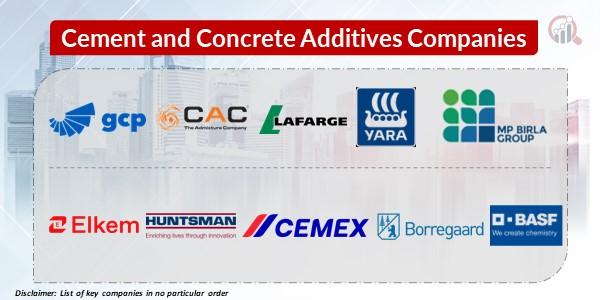Cement and concrete additive companies play a crucial role in the construction industry by providing innovative solutions to enhance the performance, durability, and sustainability of cement and concrete products. These companies focus on developing and manufacturing a wide range of additives that are used in the production of cement and concrete to improve various properties such as strength, workability, and resistance to environmental factors.
One of the key functions of cement and concrete additives is to optimize the performance of cementitious materials. Cement, the primary ingredient in concrete, undergoes chemical reactions during hydration, resulting in the formation of a hardened structure. However, the properties of conventional cement can be further improved by incorporating additives. These additives can be categorized into various types, including accelerators, retarders, water reducers, air-entraining agents, and specialty additives.
Accelerators are additives that expedite the setting and hardening of concrete, making it suitable for applications where early strength development is crucial. Conversely, retarders slow down the setting time, allowing for extended workability and facilitating the placement of concrete in large construction projects. Water reducers are additives that enhance the workability of concrete by reducing the amount of water needed while maintaining the desired consistency. Air-entraining agents introduce microscopic air bubbles into the concrete, improving freeze-thaw resistance and durability.
Cement and concrete additive companies invest heavily in research and development to introduce new and improved formulations. These innovations address the evolving needs of the construction industry, such as the demand for sustainable and eco-friendly building materials. Many companies are developing additives that contribute to reducing the carbon footprint of concrete production. For instance, some additives enable the use of supplementary cementitious materials like fly ash or slag, which are byproducts of other industrial processes, thereby reducing the reliance on traditional cement production.
Sustainability is a driving force in the cement and concrete industry, and additive companies are actively working towards creating solutions that align with environmental goals. By incorporating recycled materials and developing additives that enhance the performance of alternative cementitious materials, these companies contribute to the industry's overall sustainability efforts. Additionally, the development of self-healing concrete, enabled by certain additives, is gaining attention for its potential to extend the lifespan of structures and reduce maintenance needs.
Global competition within the cement and concrete additive industry is intense, with companies vying to provide the most effective and innovative solutions. Major players in this sector often operate on a global scale, serving construction markets around the world. These companies collaborate with construction firms, ready-mix concrete producers, and other stakeholders to ensure that their additives meet the specific requirements of diverse projects.
In conclusion, cement and concrete additive companies play a vital role in advancing the construction industry by providing solutions that enhance the properties of cement and concrete. Their commitment to research and development, sustainability, and innovation ensures that the construction sector has access to cutting-edge technologies that contribute to the development of durable, high-performance, and environmentally friendly infrastructure. As the industry continues to evolve, cement and concrete additive companies will remain at the forefront of shaping the future of construction materials.
Read More About This Page: Cement and concrete additive Key companies
